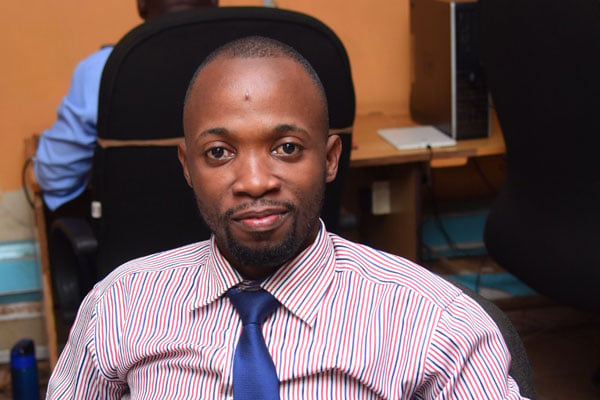Aids body calls for increased govt funding

A health worker analyses blood samples collected from people living with HIV/Aids. Shortage of funds, coupled with Covid-19 disruptions, affected outreaches, distribution of condoms, HIV testing and treatment, triggering an increase in the new infections from 38,000 in 2020 to 54,000 in 2021. PHOTO | FILE
The Uganda Aids Commission has tasked the government to increase, prioritise, and ensure sustainable funding in the HIV/Aids fight if the country is to achieve its goal of zero infections by 2030.
While Uganda has had a largely successful story in the fight against Aids, efforts to end the epidemic as a public health threat in the next eight years face a major hurdle in funding, stakeholders say.
Dr Nelson Musoba, the Commission director general, said donor funding continues to decline as emerging concerns such as climate change and other diseases take centre stage.
Dr Musooba was speaking at the National HIV and Aids Symposium launch in Kampala yesterday.
“Much as there is political commitment to fight HIV/Aids, funding still remains a challenge since most of the support comes from donors. More than 1.4 million people are living a HIV positive life in Uganda and of Shs2.3 trillion needed to take care of these people, the government only injects Shs150b annually, which is less than 15 percent,” he said.
“If we are to achieve our country’s target to end HIV by 2030, government has to take control of the Aids fund because our donors have also got a number of priorities. This is evidenced by the continuous decrease in the donor funds to fight Aids in the last two years,” he added.
Parliament created the Aids Trust Fund in 2012 to establish a separate fund from the Health ministry budget and to address funding gaps but it has remained dormant since.
Worrying trend
UNAids, the global body leading the fight against HIV/Aids, expressed concern at the continued trend of high new infections among adolescent girls and young women.
UNAids statistics indicate that despite the reduction in Uganda’s HIV prevalence from 18 percent in the 1980s to 5.5 percent in 2021, there is an increasing number of new HIV infections among young people.
The strategic information advise for UNAids in Uganda, Mr Jotham Mubangizi, said many girls and women have limited say on their sexual life and choices.
“Last year, 54,000 people got infected with HIV. Of these 15,000 were adolescent girls and young women (15-24) and 5,000 infections were from their male counterparts of the same age group,” Mubangizi said.
This year’s symposium, scheduled for November 8-10 at Makerere University Business School, will run under the theme: “Ending inequalities among adolescent girls, young women and boys”, as government seeks to galvanise efforts to combat the worrying trend.
Dr Musoba said the symposium will bring all stakeholders on board to further evaluate the country’s performance and also focus on formulating priorities for the next year in line with the National HIV/Aids Strategic Plan.
“One of our core mandate is to coordinate the Multi-Sectoral HIV Response in the country. We have taken this activity from the boardroom to the open spaces where we can have more implementers participating not only as presenters but also as exhibitors. In addition, we have opened space for communities to participate, especially young people by setting up a Philly Lutaaya corner that will be dedicated to dissemination of HIV prevention messages through music and art,” Dr Musooba said.
Other features at the symposium, include the Annual Joint Aids Review, Scientific Conference, Philly Lutaaya Lecture, Partnership Forum, HIV Financing Dialogue and Exhibitions.
The chairperson of the parliamentary committee on HIV and related matters, Ms Sarah Kayagi, told Daily Monitor that Parliament is engaging all stakeholders to ensure that there is more domestic resource allocation to fight HIV/Aids.
“As Parliament, we shall continue not only to advocate for increased funding for the response, but provide the necessary leadership needed to ensure that Uganda meets the target of ending Aids by 2030,” Ms Kayagi said.





